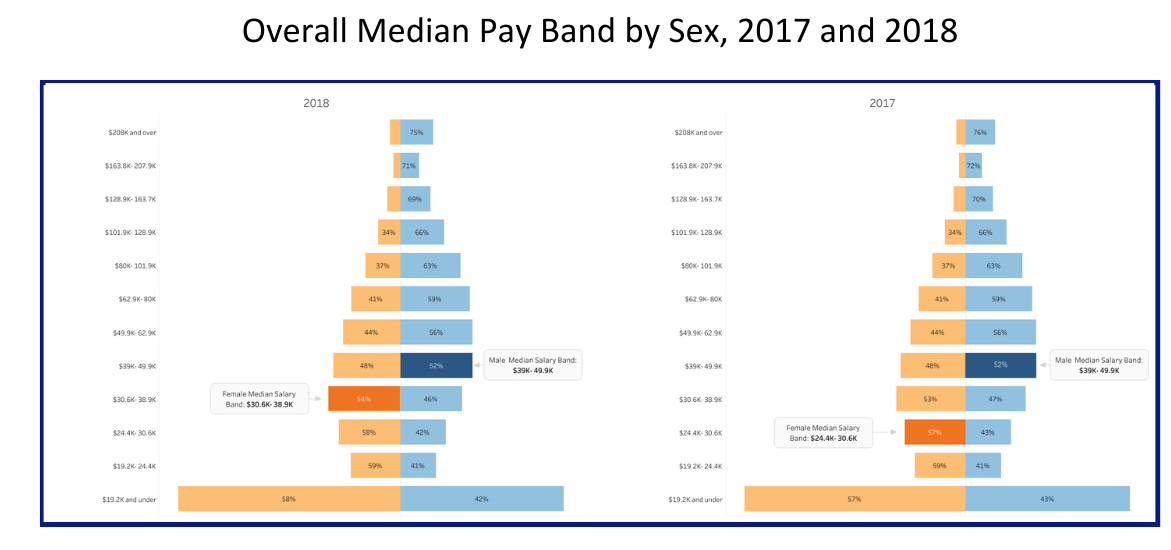What could be more exciting and anxiety-inducing than your teenager’s first summer job?
Starting a job is a significant moment that marks the transition into adulthood. It brings new responsibilities and opportunities. Research has shown that having these experiences, whether working in a restaurant, mowing lawns, or working in a family business, can have many benefits. Teenagers can gain independence, valuable job and life skills, and experiences that can help them transition into adulthood.
However, what should be a positive step can take a harrowing turn when the workplace becomes grounds for abuse. Today, the alarming reality is that sexual harassment is not just a risk confined to corporate settings but is increasingly common in the first job scenarios that many teenagers find themselves in.
Your child’s excitement for that first day of work is often matched with the anxiety of a million parental what-ifs. But in the shadows of those concerns looms a particularly distressing question about their safety from the risk of harassment. Sexual harassment in the workplace is illegal, yet it continues to stain the environment our teenagers enter with trepidation and expectations.
The first shield against workplace abuse is parental guidance. Preparing your kids for their first job means more than just providing your teen with a packed lunch and a pat on the back. It means giving them the tools to recognize and confront inappropriate behavior. Open and honest conversations about what constitutes harassment and how to respond can significantly empower them. Make sure they understand that anything that feels uncomfortable should be addressed. Building a trusting relationship with your teenager is crucial, and letting them know they can come to you with any concerns or questions.
We want to send a clear and opposing message: every worker has a right to a workplace free from sexual harassment, and the EEOC will hold employers accountable. Nancy Sienko, director for the EEOC’s San Francisco District. In the realm of a teenager’s first job, power dynamics are often skewed, anchored in age, experience, and position. A young manager, though closer in age, holds a significant degree of authority and influence over a teenager stepping into the workforce. This relationship, ideally meant to mentor and guide, can sometimes devolve into a complex web of control and vulnerability. The subtle or overt exertion of power by a young manager can be intoxicating, sometimes leading to abuses of authority. The teenager, eager to impress and fearful of repercussions, may find themselves in a precarious position—torn between standing up for themselves and threatening to lose their job or face workplace ostracism. Understanding and acknowledging these dynamics is crucial for teenagers and their guardians, setting the stage for preventive measures and support systems to safeguard against potential abuses.
Recognizing Warning Signs
Parents need to educate themselves on the issue of workplace harassment and assist their teenagers in recognizing inappropriate behavior. We equip them with valuable tools by teaching them about boundaries, consent, and respect. The EEOC created a website dedicated Youth@Work to helping educate young people about discrimination and harassment in the workplace.
Educators’ Role in Empowerment
Teachers can play a significant role in preparing teenagers for any professional scenario. Teachers preparing students for their first job include warnings about the potential abuse teens might face and foster a culture of understanding and dialogue in their educational environment — giving them the power of anticipation and the power of voice.
Business Owner Obligation
Ultimately, employers shoulder direct responsibility. A thorough understanding of the laws governing harassment is more than a legal requirement; it’s the means to cultivate a safe working environment. Proper training and transparent policies, particularly for management, are essential in protecting teen employees. For business owners, staying vigilant about the interpersonal dynamics within their establishment is critical to maintaining a safe and respectful work environment for all, particularly for teen employees. Warning signs that may indicate a potential problem between a manager and a teen employee include noticeable changes in the employee’s behavior, such as increased anxiety, withdrawal from team interactions, or a sudden dip in job performance. Other red flags could be a manager spending excessive time alone with a teen employee, showing favoritism, or engaging in communication outside of work hours without a professional pretext. Employers need to create a culture where these signs are observed and acted upon with discretion and urgency, ensuring that the workplace remains safe for young workers to thrive and grow professionally.
Shocking Cases of Abuse
Recent legal battles have brought to light egregious situations where teenagers have been subjected to abhorrent behavior despite legal protections. These cases not only highlight the vulnerability of young workers but also the stark reality that job-related abuse isn’t solely a point of concern for corporate environments. The responsibility of ensuring a safe and respectful work environment falls on everyone, from parents and educators to business owners and employers. By working together and taking preventive measures, we can protect our teenagers from job-related abuse and create a better, safer future for all.
The Chipotle Case Exposes
The Chipotle case (EEOC v. Chipotle Services, LLC and Chipotle Mexican Grill, Inc., Case No. 2:22-cv-00279) unearthed a sordid tale of degradation where a male colleague at a Florida outlet not only engaged in sexually explicit comments about a female teenage co-worker but escalated to a physical act. The implications point to corporate culture failures that allowed such an incident to occur and persist.
This case involves workers in their teens and early 20s. These are their first impressions they will they form about the workplace, and it is devastating when an employer permits sexual harassment to continue despite repeated complaints.
Shane’s Rib Shack Retaliation
Similarly, Shane’s Rib Shack (EEOC v. RSPS Holdings, et al., Civil Action No. 5:24-cv-00049)franchisees in Georgia chose to act in blatant defiance of what is right when they subjected a female employee to daily, unwanted advances from a manager that fabricated a workplace environment of fear, degradation, and ultimately, career sabotage when she was fired for complaining.
Teenagers must be prepared if they face workplace harassment, even if employers have taken precautionary measures. If harassment occurs, the first step is to report it immediately to a supervisor or HR. Reporting will begin the documentation process and often results in a quicker resolution.
If internal channels fail to provide resolution, it may be necessary to seek external help. Sexual harassment lawyers are experienced in navigating the complexities of such cases. They can provide the support needed to ensure that the legal weight of sexual harassment laws is used to protect young victims.
Parents, educators, and employers must work together to create a safe and supportive environment for teenagers. By taking a unified stand, we can ensure that our teenagers are not only unscarred by their first job experience but are also armed with the resilience and wherewithal to face the complexities of the working world, no matter the odds.
Like this:
Like Loading...










